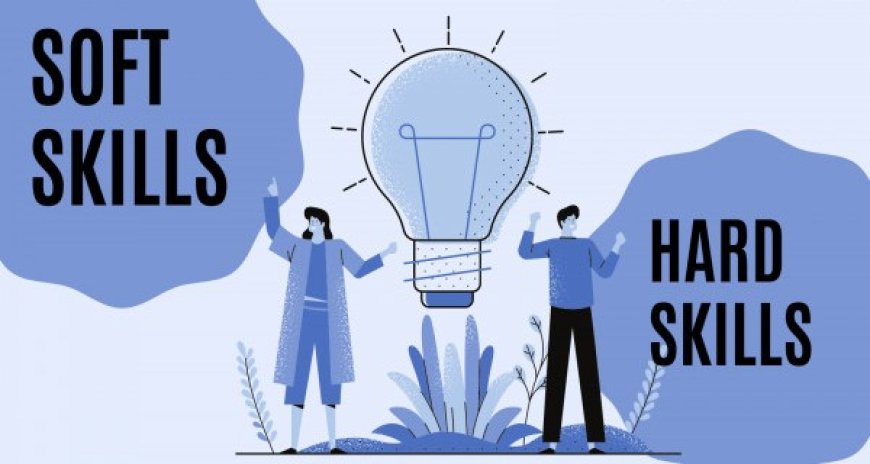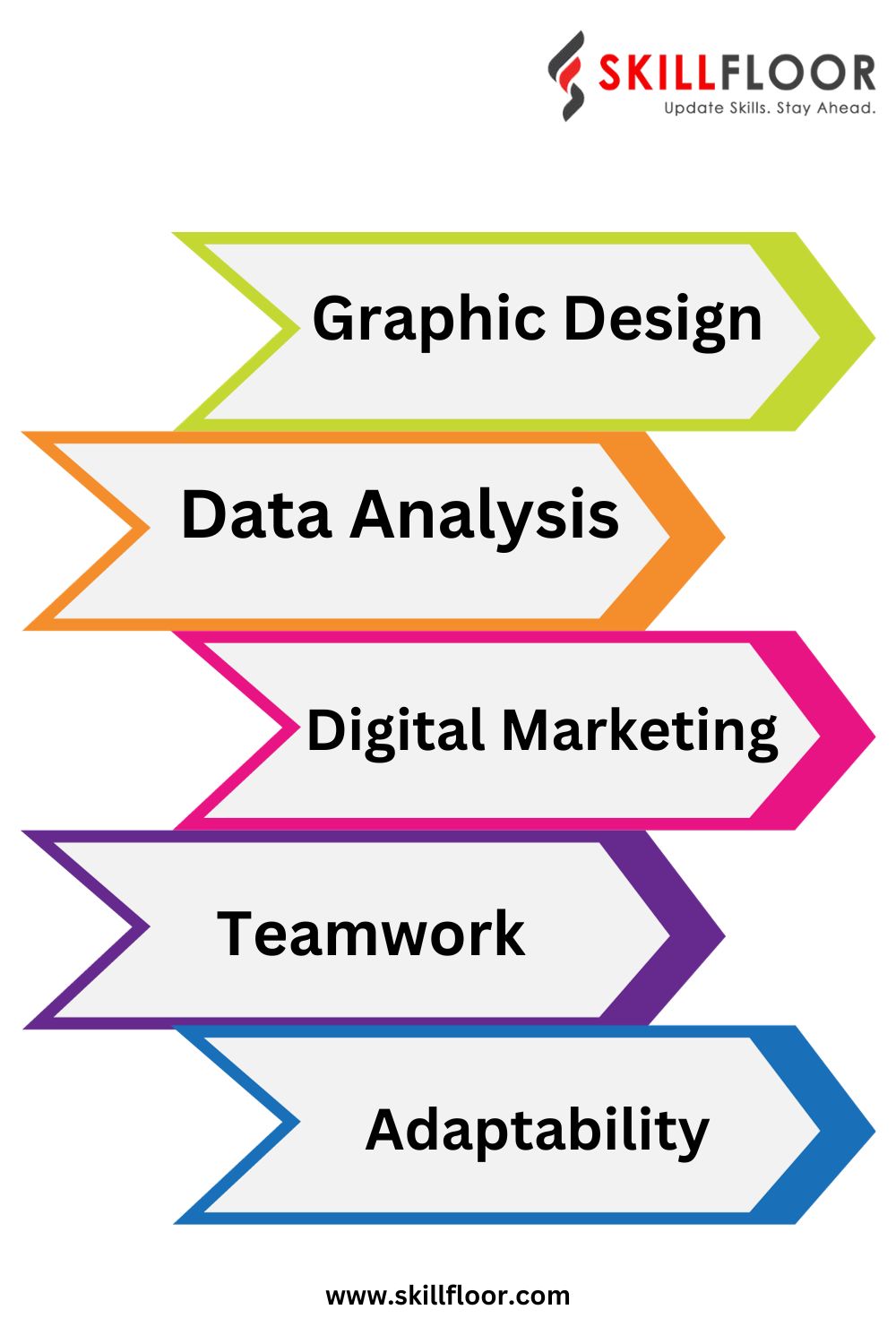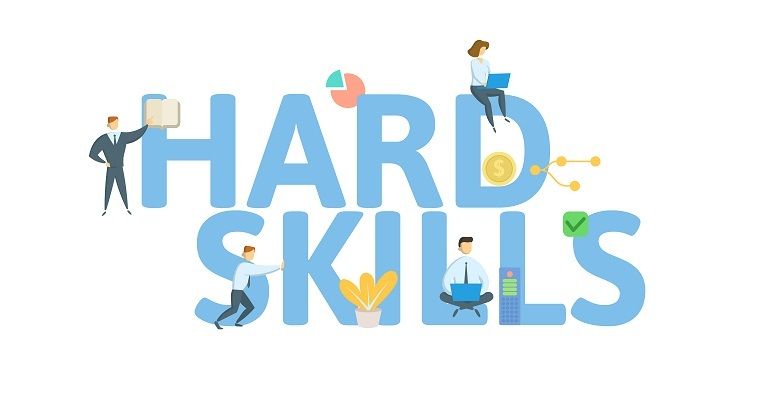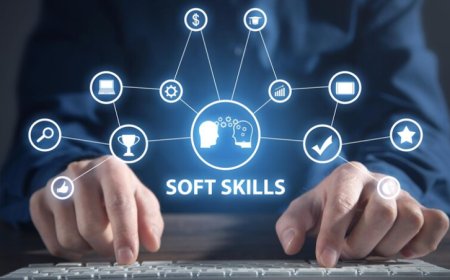Understand The Difference Between Soft Skills Vs. Hard Skills
Explore the distinction between soft skills and hard skills, crucial in personal and professional development. Learn how soft skills, such as communication and teamwork, differ from hard skills, which encompass technical expertise. Understand their respective roles and importance in various contexts.

Hard and soft skills have different functions in the workplace. Soft skills include interpersonal qualities like cooperation and communication, whereas hard skills are specialized, teachable abilities like coding or data analysis. Both are essential for a professional who is successful and well-rounded.
What Are Hard Skills?
Hard skills refer to the specific, teachable abilities or knowledge that can be measured and defined. These are often job-specific and can be acquired through education, training, or practical experience. Examples of hard skills include proficiency in programming languages, data analysis, graphic design, or foreign languages. These skills are tangible and can be easily demonstrated or tested, making them essential for performing specific tasks within a job. In contrast to soft skills, which are more about interpersonal and communication abilities, hard skills are concrete and play a crucial role in determining a person's suitability for a particular role or profession. Employers often seek candidates with a combination of both hard and soft skills to ensure a well-rounded and effective team.
Examples of Hard Skills
Hard skills are the practical abilities and knowledge you pick up through education and experience. These are the specific, teachable skills that you can measure and quantify. Here are a few examples:

Coding and Programming: This is about writing lines of code to make software and websites do their thing. Languages like Python, Java, or HTML fall into this category.
Graphic Design: If you can create eye-catching visuals using tools like Adobe Photoshop or Illustrator, that's a hard skill. It's all about making things look good.
Data Analysis: Crunching numbers and making sense of data using tools like Excel, SQL, or even more advanced platforms like Tableau.
Language Proficiency: Being fluent in a particular language, whether it's English, Spanish, or Mandarin, is a solid hard skill. It's practical and directly applicable.
Digital Marketing: Since you're in the digital marketing world, skills like SEO (Search Engine Optimization), SEM (Search Engine Marketing), or social media marketing fall into this category.
Project Management: Handling tasks, timelines, and resources efficiently. Tools like Asana or Trello are commonly used here.
Financial Analysis: Understanding and interpreting financial data, using tools like Excel or financial software.
What Are Soft Skills?
Soft skills refer to a set of personal attributes and interpersonal abilities that enhance one's interactions, job performance, and career prospects. Unlike technical or hard skills, which are specific to a certain job or industry, soft skills are more universal and are often applicable across various domains. These skills encompass communication, teamwork, adaptability, problem-solving, time management, and emotional intelligence. They play a crucial role in fostering effective collaboration, resolving conflicts, and navigating the complexities of the modern workplace. Soft skills are increasingly valued by employers as they contribute to a well-rounded and resilient workforce, promoting positive work environments and successful professional relationships. Developing and honing soft skills is essential for individuals aiming to thrive in today's dynamic and interconnected professional landscape.
Examples of Soft Skills?
Soft skills are those non-technical abilities that make you good to work with. They're not about what you know, but how you go about things. Think of them as the people skills that help you interact and work well with others. Here are a few examples:
1. Communication: Being able to express yourself clearly and listen to others. It's not just about talking but making sure everyone's on the same page.
2. Teamwork: Working together with others towards a common goal. It's about being a team player, helping out, and not just looking out for yourself.
3. Adaptability: Being flexible and able to roll with the punches when things don't go as planned. Life's full of surprises, right?
4. Problem-solving: Figuring out solutions when challenges come your way. It's about being practical and using your noggin.
5. Time Management: Juggling tasks and making the most of your time. It's not about working every minute but working smart.
6. Empathy: Understanding and feeling for others. It's like putting yourself in someone else's shoes and seeing things from their perspective.
These soft skills are like the glue that holds a workplace together, making it a smooth and friendly environment. They might not get shouted about, but they're just as crucial as knowing your stuff.
Differences Between Soft Skills and Hard Skills
Soft skills and hard skills are two distinct categories that play crucial roles in personal and professional development. Hard skills refer to the specific, teachable abilities and knowledge that are typically measurable and easily defined. These are skills you acquire through education and training, like coding, data analysis, or language proficiency.
On the other hand, soft skills are more intangible and focus on interpersonal relationships and communication. They involve traits like adaptability, teamwork, and communication skills. Unlike hard skills, soft skills are often harder to quantify, but they are equally important in the workplace. These skills contribute to effective collaboration, problem-solving, and overall success in various professional settings.
While hard skills showcase your expertise in a particular area, soft skills reflect your ability to work well with others, navigate challenges, and adapt to changing circumstances. Both are valuable, and a well-rounded individual typically possesses a combination of both hard and soft skills for a successful and fulfilling career.
How to Learn New Skills?
Getting on the learning train is a game-changer, both in your personal and professional life. Let's break down some practical ways to level up your skills:
Choosing What to Learn
Select your skills wisely based on your goals and passions. If career growth is your aim, have a chat with your boss about recommended training. For a new career path, scout job ads to understand the skills in demand.
Learning on the Job
Lots of companies offer training opportunities for employees. Attend expert talks, training sessions, or get involved in new projects. Working in uncharted territory at your job is a subtle yet effective way to pick up new skills.
Podcasts and Webinars
The internet is a treasure trove of knowledge. Dive into YouTube, webinars, live videos, and podcasts – they're accessible and cover a vast array of topics. Whether you're a newbie or an expert, these resources are golden.
Mentorship Matters
Having a mentor is like having a secret weapon. It's a fantastic way to broaden your horizons. If you're keen on advancing in your current job, a company mentor can be a game-changer, offering guidance and nudging you to try new things.
Content Consumption
Read up on your industry and its key players. Check out books by experts in your field. Staying informed not only helps you understand your company better but also positions you to propose solutions to its challenges.
Networking 2.0
Traditional networking is solid, but don't overlook internal connections. Get to know your colleagues from different departments. Find out about their skills and projects. Offering a helping hand can expand your skill set while building valuable relationships.
How to Develop Hard Skills?

Developing hard skills is a crucial aspect of personal and professional growth. Hard skills are specific, teachable abilities that are easily quantifiable. To enhance these skills, one effective approach is focused learning. Start by identifying the skills relevant to your field or interests. Utilize online courses, workshops, or even self-paced tutorials to gain in-depth knowledge.
Practice plays a pivotal role in skill development. Regularly apply what you've learned to real-world scenarios. Whether it's coding, data analysis, or graphic design, consistent practice sharpens your proficiency. Seek out practical projects or challenges to reinforce your understanding.
Feedback is a valuable tool for improvement. Share your work with peers, mentors, or online communities to receive constructive feedback. This not only helps refine your skills but also provides diverse perspectives.
Networking within your industry can open doors to collaborative learning and skill exchange. Engage with professionals, attend relevant events, and participate in discussions to stay updated on industry trends and best practices.
developing hard skills involves focused learning, consistent practice, seeking feedback, and active networking. By adopting these strategies, you'll pave the way for continuous skill enhancement in the ever-evolving landscape of digital marketing or any other field.
Hard skills are measurable and specialized abilities, like language or coding, that are learned through schooling or training. Conversely, interpersonal qualities like flexibility and collaboration are known as soft talents. Both are essential for professional growth, and someone well-rounded will have a combination of the two. Making informed decisions, using internet resources, getting on-the-job experience, networking, mentoring, and remaining informed are all important components of learning new skills. To continuously progress in a modern changing market, developing hard skills involves concentrated learning, persistent practice, feedback, and industry networking.






























































